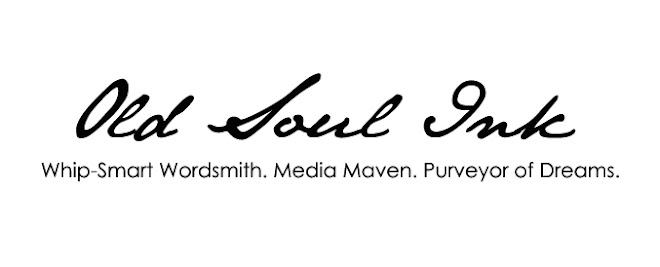
Mark McGuinness is a poet and a coach for creative people. Mark's latest venture is Lateral Action, a web publication to help creative professionals achieve success (creative and commercial). Lateral Action is a joint venture with Brian Clark and Tony Clark. Mark is a bona fide savvy guy with a bona fide poet's soul--a most unusual and delightful combination. Via his websites and his Tweets (he's @markmcguinness on Twitter), he shares useful tidbits and witty observations (real witty, not Twitter witty, if you know what I mean?). Not to put too fine a point on it, but Mark is a well-rounded person, and how often does one find that in these heady, Web 2.0-heavy times?
(Oh, and in case you're wondering about some of his spellings: he lives in London, y'all.)
1. In the context of your work, which bits of minutiae matter most?
Coaching: Often it's the little cues from the client during a session -- a change of expression or voice tone, a gesture, a hesitation or turn of phrase -- that alerts me to something important. A lot of the art of coaching is your ability to pick up these little clues and weave them back into the conversation.
Writing: Obviously there are plenty of verbal minutiae to be aware of -- grammar, punctuation, spelling, syntax etc. And with poetry there are additional elements of formal minutiae -- rhyme, rhythm, meter, alliteration etc. At the moment I think tone is probably the element I'm mostly preoccupied with, in poetry and prose. It can be very subtle, and is influenced by a combination of all the other elements, so you have to become very sensitive to pick up when you're hitting the right note or when the writing is off key. My poetry teacher Mimi Khalvati has an incredible ear for the authentic voice of a poem, and I'm doing my best to learn from her and edit out the false notes.
2. Which bits matter least?
Coaching: The bits that feature in long explanations -- too much back story or analysis of past events. Sometimes clients start off thinking I need to know everything about their situation in order to help them make changes, but usually that isn't the case.
Writing: Explanations again! I have a tendency to over-explain things, which I'm trying to cut down on.
3. In the context of your life, what types of minutiae once seemed important, but have since fallen by the wayside? Why?
I used to be a big book collector and was very finicky about getting (and keeping) books in mint condition. These days I don't buy so many books and I'm not quite so fussy about their condition. I've even started using (gasp) a pen to make notes in some books!
I think the change is partly because I do a lot of my reading on the Internet, which makes you realise how ephemeral most writing is. And hopefully it's because I've come to realise that the words are more important than the books. I treasure the words more than ever.
4. What types of minutiae, if any, have you had to train yourself to pay closer attention to?
Coaching: All of it, originally. A big part of my training when I started out as a psychotherapist was to get me to stop thinking about theories and start looking at clients and listening to them. More recently, since I trained as a Reverse Therapist I've become more alert to the promptings of my intuition. So now when I get a gut feeling about something I speak up and share it with the client. Usually they find it helpful.
Writing: Well right now I'm working on Lateral Action with Brian Clark, a world authority on copywriting headlines, so I'm taking a lot of care over writing my article headlines! And also with Tony Clark, who is the design and technical wizard at Lateral Action. Tony is rightly very concerned that we format everything correctly so that it looks right for our readers - so I'm doing my best to be meticulous with formatting codes!
5. Just for kicks -- what are your favorite bits of minutiae (personal, from a book, a piece of music, moment in a movie, etc.)?
It's just occurred to me that my poetry blog is a collection of my favourite bits of poetry minutiae. For example, I wrote a recent post wondering whether W.H. Auden rhyming 'clerk' with 'work' was a sign of him developing an American accent. (It doesn't rhyme properly with a British accent.) That's the kind of thing that I doubt anyone else loses much sleep over, but I enjoy writing about it on the off chance that someone, somewhere may find it of interest. In this case, I was delighted to discover that I was right -- one of my readers found a recording of Auden reading the poem, which confirmed the accent!
***
Thank you, Mark! (Especially for the bit about 'clerk' and 'work'... I feel much less alone in the world now.)







0 comments:
Post a Comment